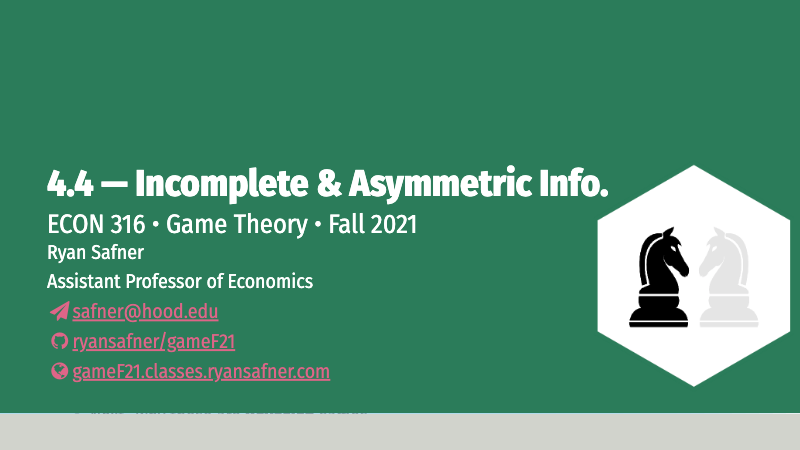Overview
Today we begin to relax our assumption of perfect information in games, and look at games with imperfect, and incomplete information. The typical type of incomplete information game is a game of asymmetric information — where (at least) one player has private information (about their type), that the other player(s) does not know. These are considered Bayesian games, since the players must act on their beliefs about the other players, and update their beliefs based on their actions accordingly.
Readings
- Ch. 6.3, 8 in Dixit, Skeath, and Riley (textbook)
Chapter 6.3 talks about information sets and sequential games. Chapter 8 is about incomplete information, though unfortunately the textbook does not go into great detail about Bayesian games.
Below is the famous paper by Harsanyi that introduces Bayesian games and the common strategy for dealing with incomplete information.
Slides
Below, you can find the slides in two formats. Clicking the image will bring you to the html version of the slides in a new tab. Note while in going through the slides, you can type h to see a special list of viewing options, and type o for an outline view of all the slides.
The lower button will allow you to download a PDF version of the slides. I suggest printing the slides beforehand and using them to take additional notes in class (not everything is in the slides)!
